Spotting a spider scuttling across the floor can be a nightmare for a fearful child. As a parent, how can you help? This guide cuts straight to the chase with practical, compassionate steps on how to help child overcome fear of insects. Focused on empathy, understanding, and gradual exposure, we ensure your child’s comfort leads the way as they learn that bravery isn’t about never being afraid, but about overcoming those fears.
Key Takeaways
- Parents should validate and support their child’s fear of insects, encouraging open communication and implementing strategies to help the child confront and overcome their entomophobia.
- Overcoming fear can be facilitated by parents modeling calm behavior, guiding gradual exposure to insects, and promoting educational activities that foster curiosity and empathy towards insects.
- If a child’s fear of insects is excessive, persistent, and disrupts their daily activities, professional help from a child psychologist might be necessary to address the phobia.
Recognizing the Fear
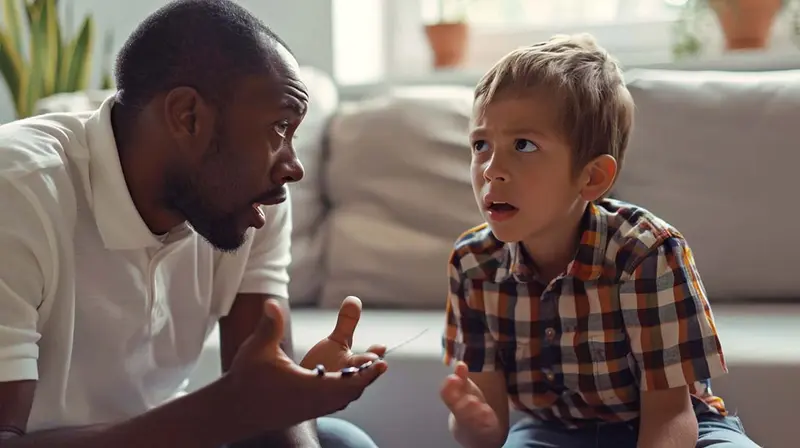
The first step towards helping your child overcome fear is acknowledging it. A child’s fear, such as their instinctive caution towards potential environmental threats, can manifest as a fear of insects, given some bugs can bite, sting, or transmit diseases. More often than not, this fear can be attributed to simple inexperience and lack of complete or accurate knowledge of insects. Understanding children’s fears is crucial for helping your child overcome these challenges.
Understanding a child’s fears and recognizing their specific phobia, also known as entomophobia, is crucial, as it stems from various factors. It’s important to:
- Validate a child’s feelings without overreacting, to avoid inadvertently suggesting there is something to be feared.
- Encourage children to express their feelings and concerns about bugs.
- Develop strategies for overcoming their fear.
The Role of Parents

Parents play a vital role in creating a supportive environment for the entire family to discuss and overcome their fear of insects, which contributes to healthy family functioning. Acknowledging and validating their child’s fear of insects can pave the way for a joint effort in overcoming the fear together.
Empathizing with your child’s entomophobia by acknowledging it and reassuring them that it’s completely normal to have such fears can create a supportive environment for overcoming them.
Modeling Calm Behavior
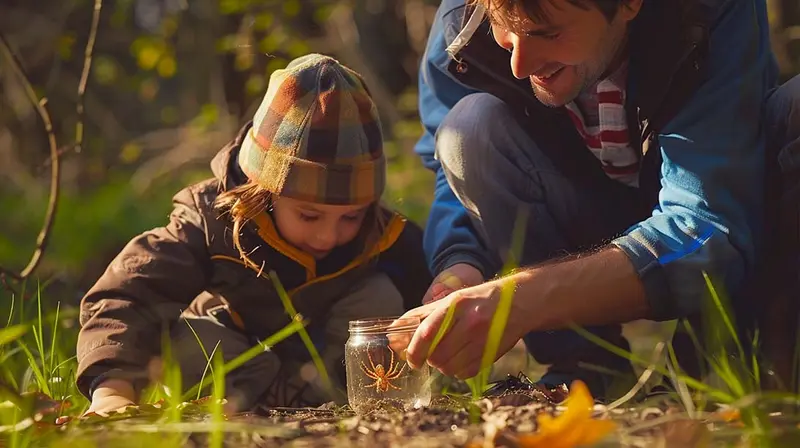
As parents, our own reactions can significantly shape our children’s responses. Children often imitate their parents’ behavior, and parental expressions of calmness when encountering insects can positively influence the child’s reactions. Therefore, it is crucial to maintain and display a calm demeanor around insects to prevent fear from being conditioned.
A simple yet effective way of demonstrating how to stay calm is to safely capture an insect with a clear jar and then releasing it outdoors. This not only teaches the child respect for all creatures but also models calmness and control in the face of fear.
Encouraging Curiosity
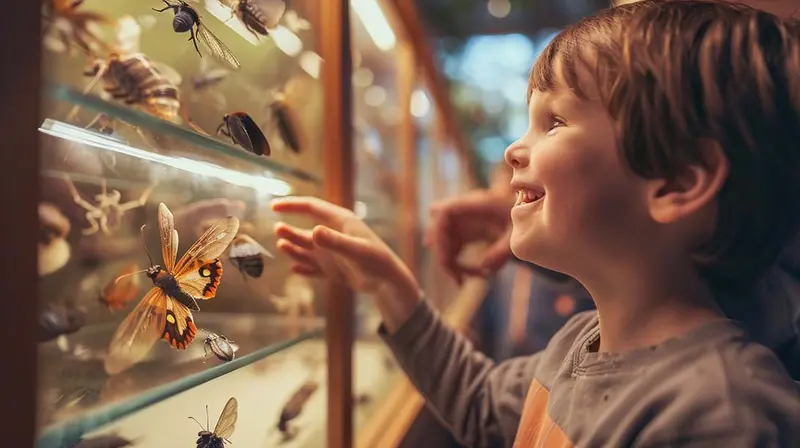
Encouraging a sense of curiosity in your child can play a pivotal role in helping them overcome their fear of insects. Introducing children to books and other resources about insects can enhance their curiosity and understanding of these creatures.
Interactive experiences in museums or nature centers can make learning about insects engaging, fostering curiosity and diminishing fear. Observing insects in their natural environments, engaging with exhibits at nature centers, and seeing calm reactions from others can encourage children to ask questions and develop an interest in entomology.
Overcoming Misconceptions

Often, children’s fear of insects, or creepy crawlies, can be attributed to misconceptions fueled by how media often depicts a particular bug or bugs in general as scary or dangerous. This fear can be mitigated by presenting positive information and examples that correct these misconceptions.
Providing children with factual information about insects through resources such as the Children’s Guide to Insects and Spiders, 1001 Bugs to Spot, and The Big Book of Bugs empowers them and reduces their fear. Explaining to children that insects’ seemingly random flight patterns are not threatening and reassuring them that the pain from insect bites is often minor can help manage their expectations and reduce fear.
Building Empathy for Insects
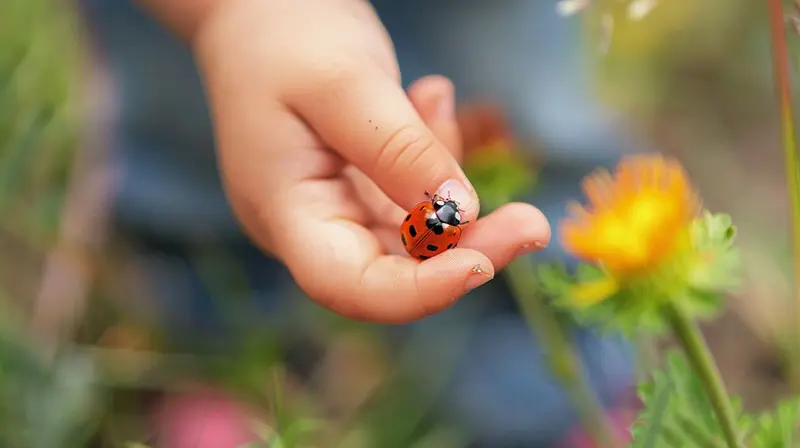
Replacing the unknown with knowledge can be a powerful tool in reducing your child’s fear of insects and other creepy crawlies. Educating children about the roles insects play in the ecosystem can help dispel fears. Bees, for instance, are crucial for pollinating flowers, leading to the production of fruits, vegetables, and crops that we depend on.
Insects like beetles and flies contribute to environmental cleanliness by decomposing dead plants and animals. Moreover, birds, fish, and other animals rely on insects as a major food source, illustrating their integral role in the food chain. Understanding insects’ vulnerabilities, such as their roles in the ecosystem and the challenges they face, can encourage children to empathize rather than fear them.
Gradual Exposure
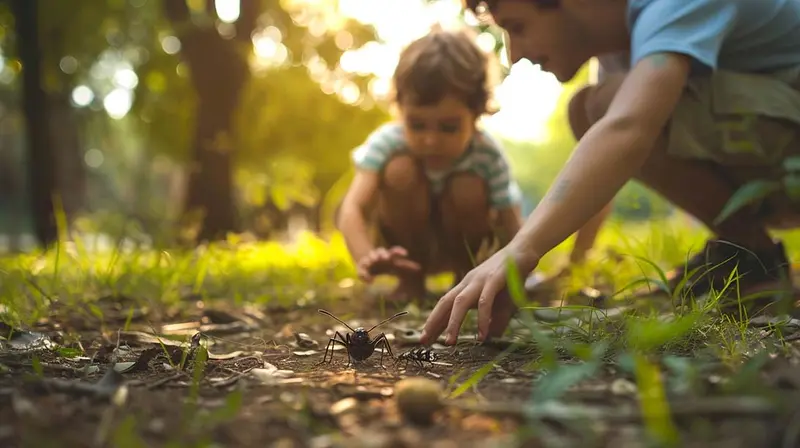
Gradual exposure to insects involves introducing children to harmless bugs and respecting their boundaries, using small and manageable steps to build confidence and reduce sensitivity. The ‘stepladder’ technique rewards each progressive step toward confronting the fear, helping the child retain a sense of control over the situation.
Starting with pretend play using toy insects allows children to familiarize with bugs in a controlled and safe environment. Watching and observing insects doing what they do, such as at a flower garden or tree, provides a non-overwhelming introduction to insects.
Remember, children should lead the way at their own pace when it comes to interacting with insects at a young age, moving toward more direct interactions as they feel ready and not forcing a child refusing to participate or comparing them to other children.
Fun and Educational Activities

Incorporating fun and educational activities into daily life can help change your child’s perception of insects. Children can partake in making insect-themed crafts like:
- Papercraft insect puppets
- Paper butterflies
- Stick and leaf butterflies
- Ladybug corner paper bookmarks
- Bees and flowers tic tac toe
- Cupcake liner caterpillars
- Toilet paper roll bugs
- Colorful craft stick insects
- Plastic spoon bugs on a branch
These activities will engage your child’s creativity and teach them more about insects in a fun way.
Reading books where insects are portrayed as friendly characters helps change children’s negative perceptions of insects. Moreover, playing entertaining and educational insect-themed games like ‘I Spy Insect Game’ can keep children engaged while learning about insects.
Coping Strategies

Developing coping strategies can be a powerful tool to help children deal with their fear of insects. Parents can help children overcome their fear by comforting them and diverting their attention from the fear during stressful situations.
Nurturing insects and engaging children in fun or relaxing activities during constructive bug interactions can develop empathy and create positive associations, reducing anxiety. Encouraging children to express their emotions and experiences through storytelling can facilitate coping with and overcoming their fear of insects.
When to Seek Professional Help
There are times when a child’s fear of insects may require professional assistance. Professional help should be sought if a child exhibits anxiety symptoms such as:
- sweating
- chest pain
- trembling
- actively avoids situations where insects may be present
Seeking professional assistance is important when a child’s intense fear of insects persists over time and begins to affect their everyday activities, including playing outdoors or socializing with peers. If a child’s fear is excessive for their age and developmental level, disrupting daily life, a mental health professional, such as a child psychologist, may consider a diagnosis of ‘Specific phobia, Animals’.
Summary
In conclusion, it’s important to remember that overcoming a fear of insects is a journey that requires patience, understanding, and a willingness to learn. By recognizing your child’s fear, fostering an environment of support, and gradually introducing them to the insect world, you can guide your child towards a more balanced understanding and acceptance of these small yet essential creatures. Remember, every child is unique, and each will require their own pace and approach to overcoming their fears.
Frequently Asked Questions
Why is my child so afraid of insects?
It's common for children to fear insects because they see them as potential threats due to their ability to bite, sting, or transmit diseases. This fear is often based on inexperience and lack of accurate knowledge about insects.
How can I help my child overcome their fear of insects?
You can help your child overcome their fear of insects by acknowledging their fear, staying calm, encouraging curiosity, addressing misconceptions, and gradually exposing them to insects. With time and patience, they can overcome their fear and develop a healthier perspective on insects.
What are some fun activities I can do with my child to help them overcome their fear of insects?
You can involve your child in making insect-themed crafts, reading books where insects are portrayed as friendly characters, and playing educational insect-themed games to help them overcome their fear of insects. Creating a positive association with insects through fun activities can help your child feel more comfortable around them.
How can I encourage my child to empathize with insects?
You can encourage empathy for insects by educating your child on the essential roles insects play in the ecosystem, such as pollinating flowers and decomposing dead plants and animals. Understanding their importance can foster empathy towards them.
When should I seek professional help for my child's fear of insects?
You should seek professional help for your child's fear of insects if they show anxiety symptoms like sweating, chest pain, trembling, or actively avoid situations with insects. If their intense fear persists and starts affecting their daily activities, it's important to reach out to a mental health professional.
References and Further Reading
For those who wish to delve deeper into the topics covered in this blog, the following resources can provide additional information and insights:
- Understanding and Managing Children's Fears - Child Mind Institute
- Modeling Behavior: How Children Learn from Parents - Verywell Family
- Entomophobia: Coping with the Fear of Insects - Verywell Mind
These references are intended to support, not replace, the advice and guidance of a healthcare professional. If you believe your child requires professional assistance, please consult a qualified practitioner.
